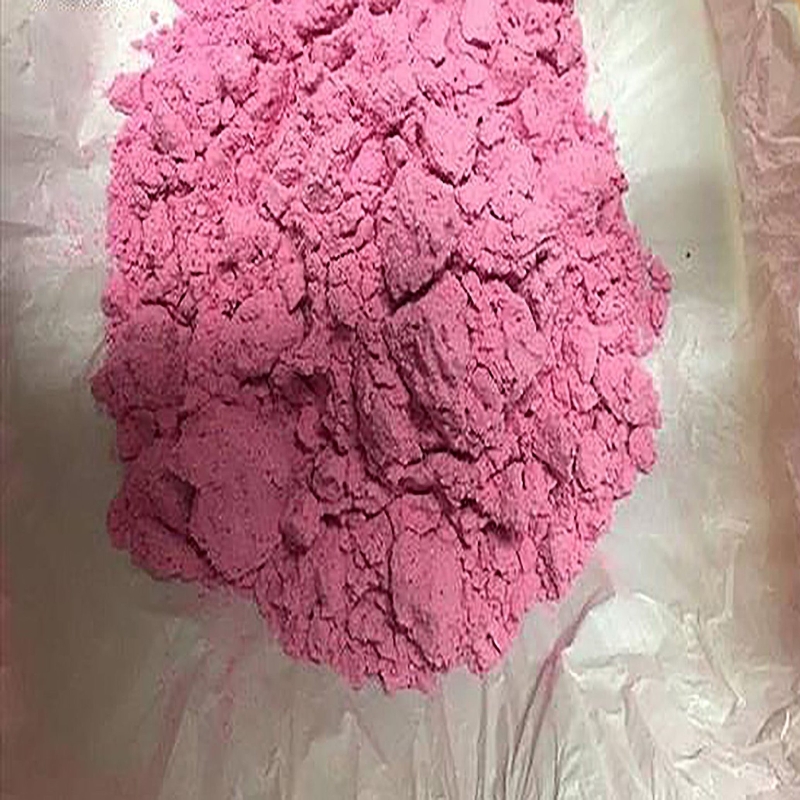-
Categories
-
Pharmaceutical Intermediates
-
Active Pharmaceutical Ingredients
-
Food Additives
- Industrial Coatings
- Agrochemicals
- Dyes and Pigments
- Surfactant
- Flavors and Fragrances
- Chemical Reagents
- Catalyst and Auxiliary
- Natural Products
- Inorganic Chemistry
-
Organic Chemistry
-
Biochemical Engineering
- Analytical Chemistry
-
Cosmetic Ingredient
- Water Treatment Chemical
-
Pharmaceutical Intermediates
Promotion
ECHEMI Mall
Wholesale
Weekly Price
Exhibition
News
-
Trade Service
The patient's anaesthetic awakening is not only the main evaluation index of tracheal intubation after surgery, but also one of the most convenient and important observation indicators of nervous system injury after early diagnosiswake-up delay can lead to longer mechanical ventilation times and intensive care time, increase the risk of other complications, and even lead to the death of patients, which also imposes a huge financial burden on patients and their familiestherefore, we need to identify the reasons for the delay in patients' wakeup and help them wake up in a timely mannerwhy do some patients have longer wake-up times?generally speaking, after general anaesthetic surgery, stop infusion of anaesthetic drugs, the patient will wake up within 60 to 90 minutes, and restore command movement, orientation and pre-surgery memoryIf the patient is still awake beyond this time limit, it can be judged as an anaesthetic wake-up delaywe know that consciousness is the human brain's awareness of the appearance of the brain, and its recovery is a continuous processIf the patient is affected by other factors in this process, they are prone to wake-up delay, which mainly includes:, agemost of the elderly (s.60 years old) have degenerative changes in organ function, and are more sensitive to narcotic drugs than young peopleMoreover, reduced liver blood flow in the elderly and reduced metabolism and intake of narcotic drugs enhance or prolong the effects of narcotic drugscoupled with the elderly in addition to organ degenerative changes, often combined with more comorbidities, psychological pressure, these factors will affect anesthesia wake up, so we have better in the elderly when taking medication to appropriate lying downthe operation time and low temperaturesurgery time is long (and hypothermia inhibits the central nervous system, while reducing blood flow to muscles, livers, kidneys, etc., slowing the metabolism and removal of narcotic drugs, leading to delayed postoperative wake-uptherefore, the operating time should be as short as possible, the procedure should also pay attention to monitor ingemia and keep warm hypoxia and CO2 accumulation patients' respiratory function during anesthesia can cause hypoxia, which can occur during surgery or immediately after surgery Common causes of hypoxia in include hypotension, lack of oxygen supply, anemia, blood gas chest, tracheal catheter misentering of one side bronchial tube, etc., and common causes of hypoxia after surgery include anaesthetic analgesics to inhibit breathing, residual effects of myaminics, secretion blocking part of the respiratory tract, hyperventilation, liquid overload, mis-suction, cold and so on and CO2 accumulation is often the residual effect of the drug or some degree of hypoxia during anesthesia, mostly in patients with high end-of-mouth PCO2 during laparoscopic surgery and surgery note that if the patient also has low blood volume and acidosis in the case of hypoxia after surgery, it is more likely to have wake-up delay - preoperative sleep deficiency has been reported that preoperative sleep is seriously inadequate, which can cause postoperative wake-up delay This is because a certain degree of sleep deprivation can enhance the effectiveness of narcotic drugs, which, like natural sleep, can effectively eliminate sleep debt sleep mechanisms that suggest that neuronal activity consumes energy during wakefulness and recovers during sleep At the same time, neuronal activity during wakefulness leads to increased energy consumption and adenosine concentration, inhibiting neuronal activity and thus inducing sleep How can wake up quickly? when we encounter patients with wake-up delay, we must first ensure that the patient's airways are smooth and adequate ventilation, oxygen ationy, and monitor the patient's SpO2, PetCO2, arterial blood gas, if necessary, can be controlled by invasive or non-invasive methods, in addition to checking the patient's electrolyte, blood sugar, urine routine and other biochemical levels then one to eliminate the cause of wake-up delay, you can start with the extension of the drug's action time Combined with the patient's surgical and anaesthetic process, the type and dosage of anaesthetic drugs, pupil reduction and slow breathing rate is one of the manifestations of opioid residues, if necessary, the use of muscle pine monitor to detect muscle loose state for such patients, can increase ventilation or rehydration, accelerate the excretion of drugs, can also be prescribed according to the anaesthetic of the application of relative antagonists, such as Xins, artorione, naloxone and so on and for low blood sugar, electrolyte disorders, hypothermia caused wake-up delay, timely correction can be is the end of the unknown cause of patients, the most important thing is to be alert to nervous system damage, so we have to check for neurological signs and strengthen follow-up Early judgment is easily disturbed by the action of anesthetic, but with the elimination of narcotic drugs, there will eventually be signs of nervous system damage location, if necessary, a neurologist can be consulted Multi-Team For Health Care Source: Main Knife Forum







